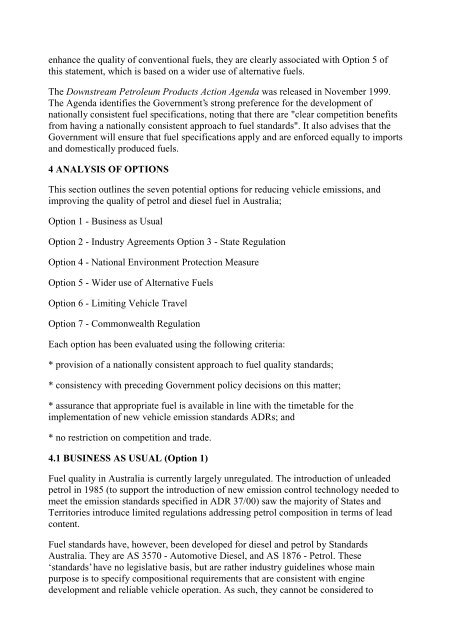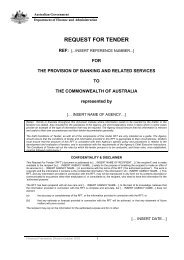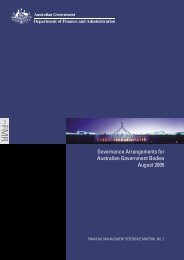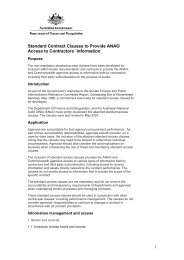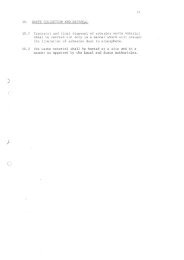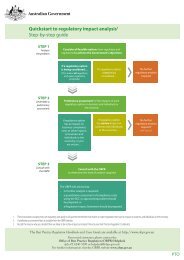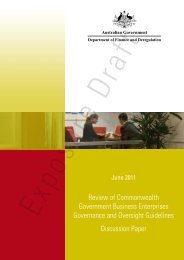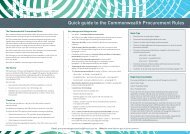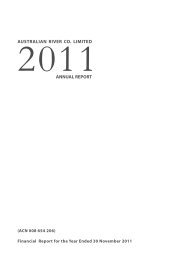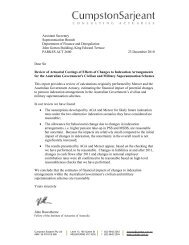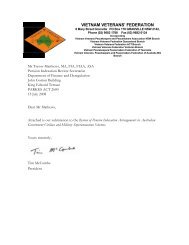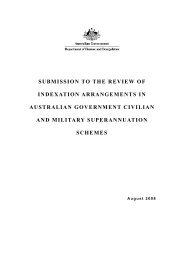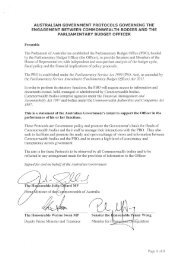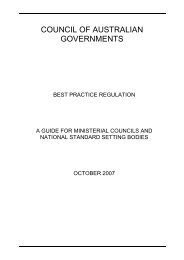National Fuel Quality Standards Regulation Impact Statement 1 ...
National Fuel Quality Standards Regulation Impact Statement 1 ...
National Fuel Quality Standards Regulation Impact Statement 1 ...
Create successful ePaper yourself
Turn your PDF publications into a flip-book with our unique Google optimized e-Paper software.
enhance the quality of conventional fuels, they are clearly associated with Option 5 of<br />
this statement, which is based on a wider use of alternative fuels.<br />
The Downstream Petroleum Products Action Agenda was released in November 1999.<br />
The Agenda identifies the Government’s strong preference for the development of<br />
nationally consistent fuel specifications, noting that there are "clear competition benefits<br />
from having a nationally consistent approach to fuel standards". It also advises that the<br />
Government will ensure that fuel specifications apply and are enforced equally to imports<br />
and domestically produced fuels.<br />
4 ANALYSIS OF OPTIONS<br />
This section outlines the seven potential options for reducing vehicle emissions, and<br />
improving the quality of petrol and diesel fuel in Australia;<br />
Option 1 - Business as Usual<br />
Option 2 - Industry Agreements Option 3 - State <strong>Regulation</strong><br />
Option 4 - <strong>National</strong> Environment Protection Measure<br />
Option 5 - Wider use of Alternative <strong>Fuel</strong>s<br />
Option 6 - Limiting Vehicle Travel<br />
Option 7 - Commonwealth <strong>Regulation</strong><br />
Each option has been evaluated using the following criteria:<br />
* provision of a nationally consistent approach to fuel quality standards;<br />
* consistency with preceding Government policy decisions on this matter;<br />
* assurance that appropriate fuel is available in line with the timetable for the<br />
implementation of new vehicle emission standards ADRs; and<br />
* no restriction on competition and trade.<br />
4.1 BUSINESS AS USUAL (Option 1)<br />
<strong>Fuel</strong> quality in Australia is currently largely unregulated. The introduction of unleaded<br />
petrol in 1985 (to support the introduction of new emission control technology needed to<br />
meet the emission standards specified in ADR 37/00) saw the majority of States and<br />
Territories introduce limited regulations addressing petrol composition in terms of lead<br />
content.<br />
<strong>Fuel</strong> standards have, however, been developed for diesel and petrol by <strong>Standards</strong><br />
Australia. They are AS 3570 - Automotive Diesel, and AS 1876 - Petrol. These<br />
‘standards’ have no legislative basis, but are rather industry guidelines whose main<br />
purpose is to specify compositional requirements that are consistent with engine<br />
development and reliable vehicle operation. As such, they cannot be considered to


